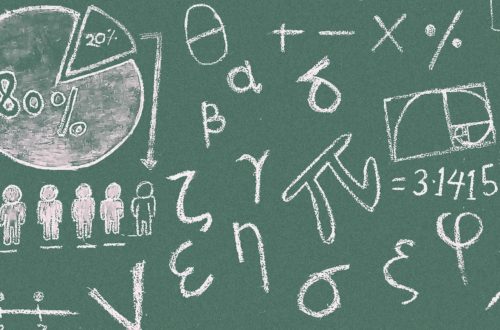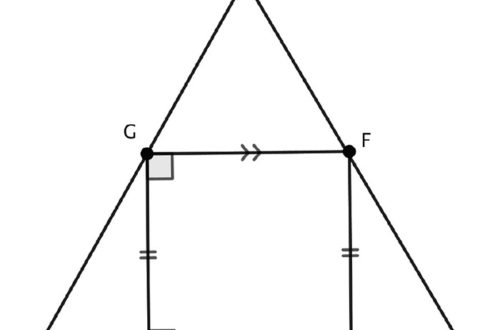Journal of the Mathematics Council of the Alberta Teachers’ Association
Volume 19 Issue 2, November 1979
Popular and professional literature more and more frequently uses terms like “basic skills,” and “minimal competencies.” Twenty-four states or more have established minimal competency requirements for advancement in school or for graduation from high school. Several others have statewide assessment programs that try to determine the degree of acquisition of basic skills in the three Rs. The experience of some states has led several organizations from the NCTM and the National Council of Supervisors of Mathematics to the Missouri, Michigan, and Montana Councils of Teachers of Mathematics to issue position papers on “basic skills.”
Inevitably concern over basic skills, whether at the state or local level, gets translated into administering some written test to determine whether such skills have been acquired. This, in turn, more often than not is reduced to using a standardized test of some kind and an interpretation of the normalized scores that are furnished to render decisions about individuals.
Once such scores are available, the temptation is great to assume that teacher effectiveness can be measured by changes in these scores from grade to grade. Terms like “accountability” then join “basic skills” and “minimal competencies.” Three very important questions need thorough debate before this process goes much farther and, through a need for self-preservation, teachers begin to teach to the tests.
What are basic skllls?
Memorized number facts or formulas? paper and pencil computations with whole numbers, decimals, and fractions? or are they thinking? imagining? estimating? predicting? inferring? sorting relevant from irrelevant? weighing alternatives and making choices? generating and testing hypotheses? identifying patterns? creating problems, arrangements? and other problem-solving behaviors?
Mathematics teachers, not text and test writers alone, or administrators alone, or legislators alone, should ·help determine what “basic skills” are, if money will be spent on testing for them, remediating the lack of them, et cetera.
What are minimal competencies?
Are they skills in doing computation better done by calculators or computers? or mathematical literacy? or ability to use graphs and tables? Or? Do minimally acceptable performances become the goals of instruction?
Teachers must help determine what minimal performances are appropriate and achievable for entry into and exit from educational programs.
What do standardized tests test?
What objectives of instruction are measured by commonly used standardized tests?
What learnings are sampled by these test items?
Are single-answer responses the major goal of mathematics teaching?
Are errors indicators of lack of skill or knowledge, or indicators of the state of concept development?
Do standardized tests measure teacher effectiveness?
Is the teacher the major factor, let alone the sole factor, in determining what children learn?
These are not new questions, but they do need continual discussion by teachers, especially now in the days of increased concern by the taxpayer for what his dollar is delivering in the way of outcomes in education. Some helpful readings are:
The Mathematics Teacher, February, 1978.
The Mathematics Teacher, March, 1978.
“The Problems of Minimalcy, ” Barry Mitzman, Math Learning Center Report, Salem, Oregon.
Phi Delta Kappa, May, 1978.
Phi Delta Kappa, March, 1977.
Phi Delta Kappa, November, 1977.
Phi Delta Kappa, December, 1976.
“Forward to Basics,” Thomas O’Brien, incidental paper of the Teacher Center, Southern Illinois U., Edwardsville, Ill. 62026.
Let’s add the voices of mathematics teachers to those of administrators, legislators, editors and other newspaper writers, textbook publishers and others in the discussion of these issues.
Dean Hendrickson
Editor
Minnesota Council of Teachers of
Mathematics Newsletter
1
2
NCTM
3 – 4
Dean Hendrickson
5
Doug Panasis
6
A Position Statement on Calculators in the Classroom
NCTM
7 – 10
The Fixed Element Match Problem: An Illustration with Cards
Bonnie H. Litwiller and David R. Duncan
11 – 13
Providing for Individual Differences and The Mathematics Curriculum
Dr. Marlow Ediger
14 – 16
A Programmable Calculator Activity
Dr. Stephen L. Snover and Dr. Mark A. Spikell
17 – 20
William A. Miller and Donald W. Hazekamp
21 – 26
Prepared by George W. Bright
27 – 31
Instructive Prime Number Reduction Algorithms
William J. Bruce
32 – 34
Issue No . 2
35 – 36
Geer, Geer, Geer and Gast
37
NCTM
38



